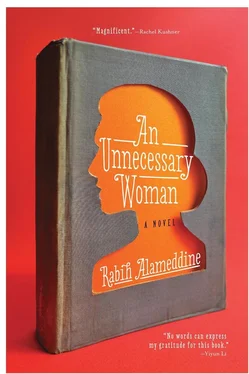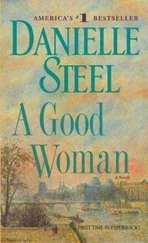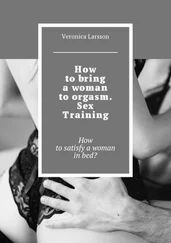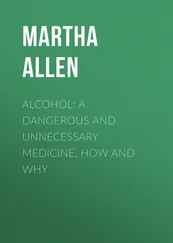You can also read a French translation of the original, then an English translation, then work as hard as you can, do your best, manage your frustrations, and translate it into Arabic before you store it in a box in the maid’s bathroom.
“Congratulations,” I say as I withdraw. “You must be so proud of your daughter. I wish you and her nothing but the best.”
If I am to leave my apartment soon, I must bathe first. I should probably eat something as well. In my kitchen I hear them being confrontational — not arguing, but challenging one another. Marie-Thérèse says something about her two companions, suggests that they were the ones who ignored something, the subject most probably being me. I move away. I wish not to listen.
Non fui, fui, non sum, non curo.
I was not, I was, I am not, I don’t care.
It is the most common text found on Roman graves.
The texts you find on Muslim stones are primarily ones extolling God and His prophets: “In the name of God, Most Gracious, Most Merciful. Praise be to God who created Heaven and Earth. Prayers and blessings to Gabriel, all the angels, Abraham, Ishmael, Muhammad, all the prophets, Muhammad’s daughter, his wives, his cousin, his best friend in high school, his pharmacologist.” I jest, of course. I have seen exquisite inscriptions on Muslim graves.
The stone upon my grave, what will its inscription say? So many possibilities, so much to choose from.
“Here lies Aaliya, never fully alive, now dead, still alone, still fearful.”
“Death, be not proud, for here you have overthrown but a speck.”
My favorite tombstone inscription is a writer’s, of course:
Malcolm Lowry
Late of the Bowery
His prose was flowery
And often glowery
He lived, nightly, and drank, daily,
And died playing the ukulele
As a diehard Pessoan, my deathstone should be inscribed with his words, and there I have so much — so much to choose from.
What am I saying? An interesting tombstone? To quote Nabokov, “history. . will limit my life story to the dash between two dates.”
I’ll probably be incinerated with my books.
Since I must leave my apartment, I will visit the National Museum, my frequent escape from the world. I’ll spend the day there. If I have time, I’ll drop in on my mother. I have to know if she’ll scream again, have to know whether it was a one-time quirk, an aberration. Only if I have time. I do not look forward to seeing her or my half brother the eldest.
I jump into the shower — well, wade into it. Hot water rolls down my body as I lather my hair with my regular baby shampoo, not Bel Argent. The blue will slowly dissipate, very slowly. Another shower, another day when I wish the building wasn’t so old; I wish for hotter water, for more of it, a better pump, less noisy pipes. A Schoenberg symphony of glockenspiels erupts every time I turn the water knobs. The pipes and I have aged together.
Water glints like sprinkles of mica across my neck and shoulders. I towel it away. I twist excess water out of my hair — I have at least this in common with Titian’s Venus rising from the sea and the Aphrodite of Cyrene. The Cyrene Aphrodite is headless, but she was supposed to be twisting her hair before being decapitated by time irreverent.
I dress quickly and haphazardly. My damp hair darkens the scarf in splotches. Walking shoes — I am walking, walking, walking. I stuff my handbag with the essentials, including a foldable umbrella and the most recent French translation of Rilke’s Duino Elegies (never leave the house without a book of poetry), before rushing out the door.
Every Beiruti of a certain age has learned that on leaving for a walk you should never be too sure of returning home, not only because something might happen to you personally, but also because your home might cease to exist.
For youngsters today, the war years are an altogether different geological era.
At my request, the jitney stops before the steps of the National Museum. I had tried to walk, but the drizzle and breeze rendered the umbrella useless. I’d kept marching for a while even though I was wet, and I found that the strange smell of the sun-starved air, and its pearly color, added to my befuddlement. During the war, breezes were nauseatingly fragrant with the odors of bodies hastily and haphazardly discarded — odors of flesh, both fresh and decaying, a city’s native perfumes. I flagged a car quickly, sanity being more necessary than calisthenics.
“Beirut Revisited (1982)” is not a poem I wish to recite today.
I made a healthy decision. The hour-long walk to the museum can be rejuvenating — I did it regularly on good days — but it has the subversive ability to unbalance a balanced Beiruti on occasion, since it is loaded with emotional land mines and unexploded ordnance. This road was the main Green Line that divided the city into east and west. There were probably more battles here, more snipers, more killings, more bodies, more decay and destruction, than anywhere else in the country — havoc and spoil and ruin. The area and the boulevard that knifes through it have been rebuilt. The bombed-out racetrack whose jutting beams and girders looked like skeletons of antediluvian animals has been refurbished, leaving nothing to remind us of the dozens of horses that burned alive in the stables — nothing but the breeze to remind us of the hundreds of pedestrians shot dead trying to reconnect with family or friends across a city at odds with itself.
I visit the museum to indulge in a much earlier history.
When the war started, the curators at the museum were rightfully fearful that it would be looted. No steel safe, no hiding place, would be able to stop a fully armed militia from getting its hands on the treasures within — in our war, we didn’t have American marines to protect our museum (je m’amuse!). The curators and museum guards dug a crypt under the building, encased the valuables in wood and cement containers, and buried them, ancient sarcophagi within a contemporary one. The building was cratered, shelled, and shot, but no one knew, no one touched, what lay beneath.
The gentle chestnut-cheeked guard nods my way discreetly. A stranger to sorrow, he seems happy to see me as usual. I prefer to pay the entrance fee, but he feels insulted if I do. We’ve known each other superficially since the museum reopened. He’s not a small man, but his excessively large head still makes him look like a dwarf afflicted with gigantism. He wears a short-sleeved cotton shirt — he is ununiformed — and I shiver for him. I once suggested that it wasn’t ethical for me to enter for free, that the museum needed our support, but he countered that the price of one ticket wasn’t going to bankrupt any coffer.
He calls me Tante. Bless him.
He sits at an old metal desk beside a metal detector that worked for a few years after the reopening. At first everyone was scanned, the X-ray machine swallowed and regurgitated purses, but then either the machines or the industriousness of museum employees broke down. As I walk through the arches of the detector, he bows his head and whispers in a conspiratorial tone, as if we were spies about to exchange supersensitive information, “It’s macaroni today, Tante. Makes me hungry.”
Macaroni is his secret spy code for Italians, which means that they account for most of the visitors in the museum today.
“I should call my wife,” he whispers, taking out his mobile phone. “Maybe she can cook some for dinner. Do you like macaroni, Tante? Red or white?”
The reason I love the museum is that not many people visit it. For a long time, I was the only one strolling these halls. The Lebanese care little for history. Arab tourists reappeared in droves after the war, but they cared even less. They returned for the sun, the beach, the mountains, the clubs, the alcohol, the drugs, and, of course, the sex, orgies right on the pavement. The secret spy code for Arabs is camels . The guard is Shiite — he probably thinks I am as well and I’ve yet to correct him — so he dislikes Saudis, and on the rare occasion that they visit, he delights in hissing their code. Sometimes he puffs out his lips and chews on imaginary cud. He beams when Iranians visit; their secret spy code is shahs .
Читать дальше












